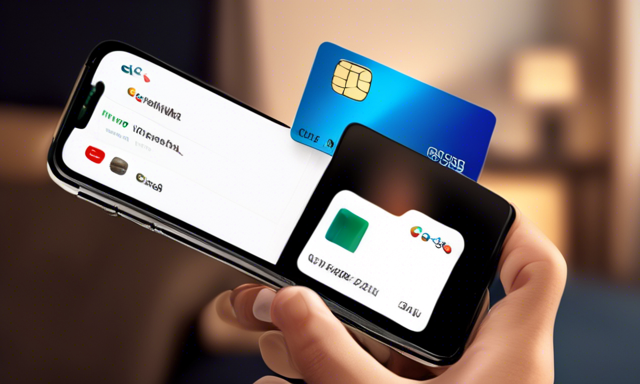Unlocking the Future: The Rise of Digital Hotel Room Keys
As a crypto enthusiast, you’re likely familiar with the shift towards digital solutions in various industries. One often overlooked area where this digital transformation is taking place is the hospitality sector. Let’s explore how hotel chains are embracing digital key systems to enhance guest experiences and security measures.
Embracing Touchless Technology 🚪
– Cybersecurity concerns prompt hotel chains to accelerate digital transformation of room door locks
– Major U.S. chains adopt digital key capability, with Google Wallet and Apple Wallet offering key-saving features
– Hilton Hotels and others introduce apps allowing digital check-ins and room key access via smartphones
– Guests at properties like the Harpeth Hotel can store keys in their Google or Apple wallet apps
– The shift towards digital keys offers convenience and enhanced security, with smartphones replacing traditional card keys
– Digital systems are viewed as the next wave in hotel room door technology, signaling the end of traditional keys
The Challenges of Keyless Entry 🔑
– Despite the benefits of digital keys, security experts warn of potential threats and vulnerabilities
– Keyless systems introduce new security risks that require robust management and control policies
– Not all hotels are quick to adopt digital key systems due to guest preferences, compatibility issues, and costs
– Transitioning to digital locks entails significant expenses in equipment, installation, and maintenance
– Human habits also play a role, as data shows low adoption rates of digital keys among hotel guests
– Some chains are now mandating new door locks for franchise owners to align with updated brand standards
Balancing Security and Convenience 🛡️
– Digital key users report feeling safer compared to those using traditional plastic cards
– Despite security concerns, leveraging technology like RFID offers improved versatility and convenience
– The convenience factor of digital keys outweighs security concerns for many hotel chains
– Patching vulnerabilities in digital systems is easier compared to traditional key cards
Legacy of the Plastic Key Card 🗝️
– Professor Mehmet Erdem highlights the importance of not discounting traditional key card systems
– RFID technology advancements make plastic keys more adaptable and sustainable
– While mobile apps offer sustainability and cost savings, some guests still prefer physical key cards
– The inherent nature of smartphones makes digital keys a compelling choice for modern travelers
Hot Take: Navigating the Future of Hotel Room Access
As a crypto enthusiast exploring the world of digital innovations, the transition to digital hotel room keys offers a glimpse into the future of hospitality. While security concerns and human behaviors present challenges, the convenience and versatility of digital keys continue to drive the industry forward. Whether you’re tapping your phone to access your room or opting for a traditional plastic key, the evolution of hotel room locks reflects a broader shift towards seamless, tech-driven experiences in the hospitality realm.





 By
By
 By
By
 By
By

 By
By
 By
By